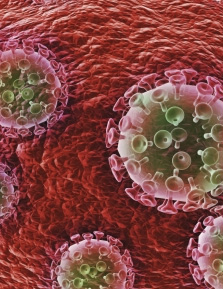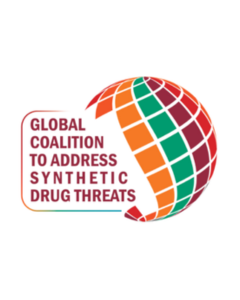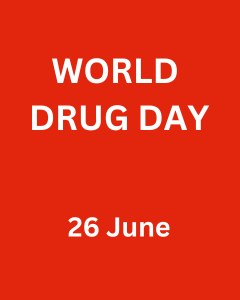by Will Godfrey
April 21, 2016
At a packed press conference in Manhattan this morning, a formidable panel—including former presidents of Mexico, Colombia and Switzerland, a former chairman of the US Federal Reserve, a former UK deputy prime minister and entrepreneur Richard Branson—declared itself “profoundly disappointed” by the failure of the UNGASS 2016 outcome document to produce substantive change.
The nine panelists represented half of the membership of the Global Commission on Drug Policy, a body which unites international leaders to advocate for wide-ranging drug policy reform.
The speakers issued by-now-familiar condemnations of the War on Drugs and explanations of better alternatives. But another theme that emerged was the risk that by ignoring the available science and examples of best practice on drug policy and harm reduction, the UN will become increasingly irrelevant as countries independently seek their own solutions.
Louise Arbour, a former UN High Commissioner for Human Rights and former Justice of the Supreme Court of Canada, outlined the choice now faced by nations determined to do better for their citizens. Countries that want to pursue policies like marijuana legalization, drug decriminalization or heroin-assisted treatment, she said, either have to denounce the international conventions—a “very serious move that could encourage other countries to walk away from other international commitments”—or else, “pretend they’re in compliance, which we know they’re not.”
The UN’s confirmation that countries must continue to work with “this repressive framework” is “a pretty sobering statement for people like me, who have always worked within legal systems,” she said.
She later elaborated to The Influence. “The system is punishing itself.” It’s not that she fears international consequences for countries that enact drug policy reforms, she explained, but a question of a destabilizing threat to the credibility of international law. “If states start cheating at the margins, it erodes the effort to have a cohesive system.”
Nick Clegg, who served as the UK’s deputy prime minister from 2010-2015, also highlighted the absurdity of the current legal situation. With marijuana legalization spreading around the US, with Canada actively pursuing it and Mexico considering it, “it could be the case,” he pointed out, “that we have a regulated market stretching from the Arctic to the equator, yet the UN convention doesn’t even mention that.”
Clegg described purely prohibitionist policies as “boneheaded.” César Gaviria, who served as president of Colombia from 1990-1994 and was Secretary General of the Organization of American States for 10 years after that, was even more outspoken, branding the idea of a drug-free world—still sought by many at the UN—a “stupid thing, totally stupid! Unreachable!”
The Commissioners expressed their support for individual countries continuing in “their efforts to fundamentally realign drug policy so that health, citizen safety and human rights are paramount.” Its opponents will see their proposals as radical.
 [The Commissioners present this morning. Back row, left-to-right: Paul Volcker, former chairman of the US Federal Reserve; Richard Branson, businessman; Nick Clegg, former deputy UK prime minister; Michel Kazatchkine, former executive director of the Global Fund to Fight AIDS, Tuberculosis and Malaria. Front row, left-to-right: Pavel Bém, former mayor of Prague; César Gaviria Trujillo, former president of Colombia; Louise Arbour, former UN High Commissioner for Human Rights; Ruth Dreifuss (chair), former president of Switzerland; Ernesto Zedillo, former president of Mexico]
[The Commissioners present this morning. Back row, left-to-right: Paul Volcker, former chairman of the US Federal Reserve; Richard Branson, businessman; Nick Clegg, former deputy UK prime minister; Michel Kazatchkine, former executive director of the Global Fund to Fight AIDS, Tuberculosis and Malaria. Front row, left-to-right: Pavel Bém, former mayor of Prague; César Gaviria Trujillo, former president of Colombia; Louise Arbour, former UN High Commissioner for Human Rights; Ruth Dreifuss (chair), former president of Switzerland; Ernesto Zedillo, former president of Mexico]
“People should not be put in jail for using drugs,” said Ernesto Zedillo, President of Mexico from 1994-2000, bluntly. Yet he and his colleagues, while naming total decriminalization of possession for personal use as their top advocacy priority, want to go further still. “We cannot avoid talking about supply,” Zedillo said. “We cannot abdicate our responsibility to regulate a product that should be regulated.” He added that it is “precisely because some drugs can be very harmful that we believe the state has this responsibility.”
The failure of UNGASS 2016 to produce significant, concrete changes to the international drug control regime surprised no one on the Commission. “UNGASS was flawed from the start,” said Richard Branson. “The process was a closed-door affair and excluded important voices from across the UN and civil society.” Describing UNGASS 2016 as a “missed opportunity,” he dismissed the resulting declaration as “long on rhetoric, very short on substance” and “out of step with mounting evidence and public sentiment.”
Yet there are some silver linings. Ethan Nadelmann, executive director of the Drug Policy Alliance and advisor to the Commission, spoke of a “remarkable level of mobilization,” despite the intransigence of the UN itself.
As Zedillo put it, “The very bad news about UNGASS is that its official declaration reinforces the 1961, 1971 and 1988 Conventions as the cornerstone of the international drug control system.” But he characterized the good news as: “many heads of state and government representatives declared the exact opposite during the conference. Instead of sticking to the status quo, they expressed their commitment to reforming domestic policies …. If governments honor the commitment to a people-centered drug policy, we may finally envision a day when wrongheaded half-century old policies emphasizing prohibition and law enforcement will be rightfully consigned to the dustbin of history.”
Looking at the heavyweights on the panel, it was hard to escape the feeling that drug policy reform—with or without UN endorsement—is gathering ever more momentum. But it was left to Michel Kazatchkine, a professor of medicine and former executive director of the Global Fund to Fight AIDS, Tuberculosis and Malaria, to remind the assembled journalists of the devastating price the world has paid—and continues to pay—for failing to correct its mistakes much sooner.
Nearly 2 million people who inject drugs around the world have HIV, he told us. Two-thirds of people who inject drugs are infected with hepatitis C. Laws and law enforcement “are in many places barriers to services” that could reduce harms. Prisons, where vast numbers of persecuted drug users end up, “are high-risk environments for infectious disease transmissions.” And thanks to international drug control, “80 percent of people in the world live in places with no access or hardly any access to controlled medications [such as opioid painkillers].”
And all of these harms and many others, he reminded us, “are not the impact of drugs, but the negative impact of … drug policies.”
http://theinfluence.org/global-commission-slams-an-ungass-2016-outcome-that-strains-the-credibility-of-international-law/
Will Godfrey is the editor-in-chief of The Influence. You can follow him on Twitter: @GodfreyWill.




